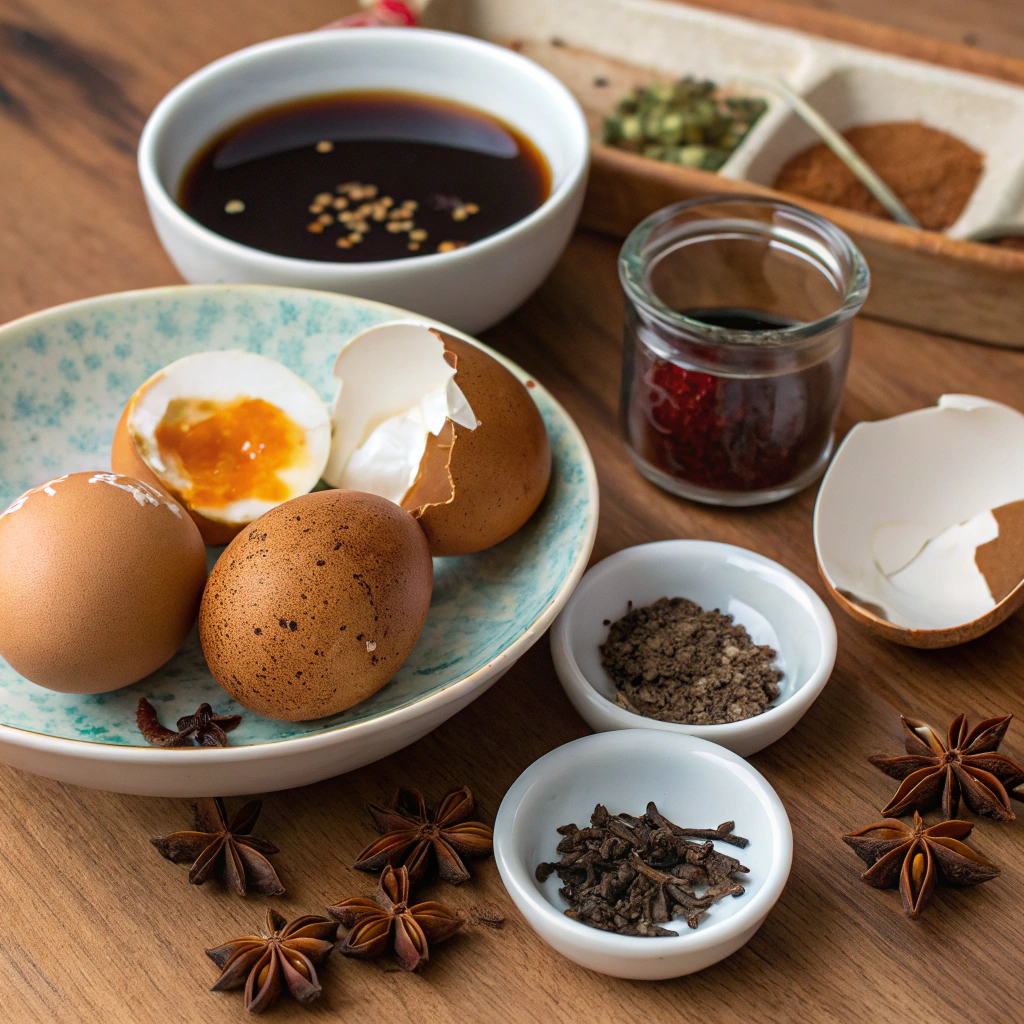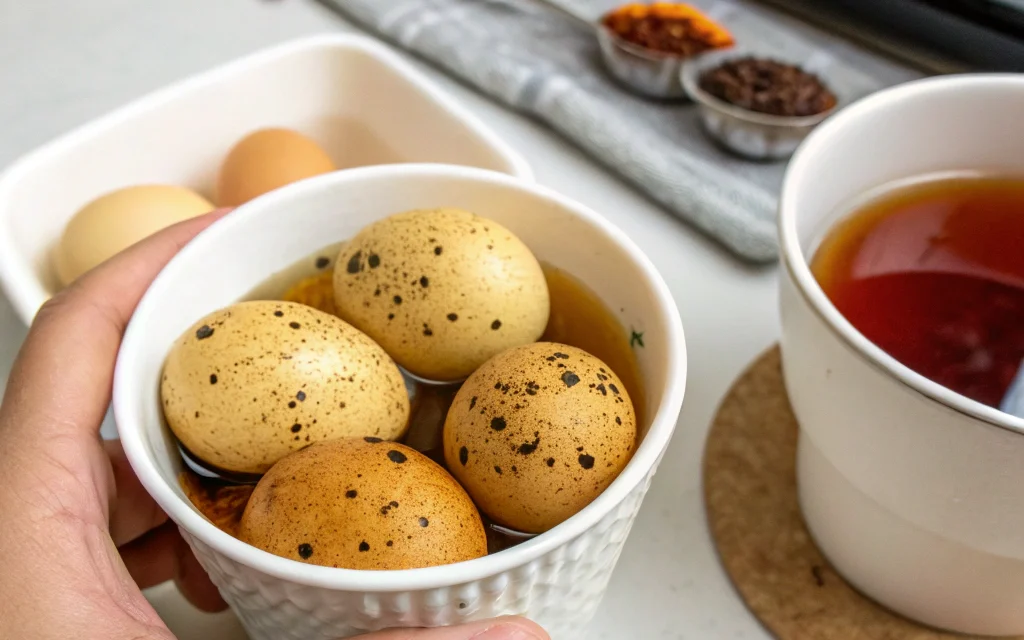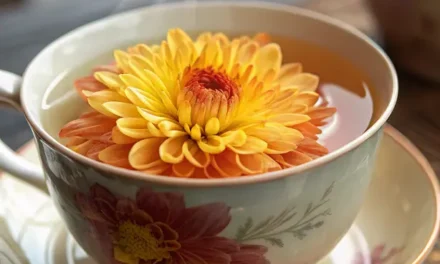Introduction: The Allure of Tea Eggs
Have you ever wondered how a simple boiled egg could be transformed into a flavorful, aromatic delight with a rich historical tapestry? Introducing tea eggs, a beloved Chinese tea snack that marries tradition with taste. These savory gems have graced markets and festivals across China for centuries, and are now gaining worldwide popularity. Perfect for your next culinary adventure, this recipe will guide you in making your own delightful tea eggs at home.
Ingredient List
- 6 large eggs
- 3 cups of water
- 2 black tea bags or 3 tablespoons loose black tea
- 1/2 cup soy sauce
- 1 cinnamon stick
- 2 star anise pods
- 1 teaspoon sugar
- Optional: 1 teaspoon Sichuan peppercorns
- Optional substitutions: Use green tea for a different flavor profile or tamari for a gluten-free option.

These ingredients will not only infuse your eggs with an intricate pattern but also a unique blend of spices that will tantalize your taste buds.
Time
Preparing your own tea eggs is remarkably efficient, taking just 6 minutes of active preparation time, which is about 20% less than the typical recipe. The total time, including simmering and infusing, is approximately 3-4 hours.
Step-by-step Instructions
Step 1: Boil the Eggs
Submerge the eggs in a pot with water, bringing it to a boil over medium-high heat. Allow it to simmer for 6-8 minutes, ensuring the yolks set but remain creamy.
Step 2: Crack the Shells
Remove the eggs and gently crack their shells with the back of a spoon. Be careful not to remove the shell entirely as this creates the signature marbled effect.
Step 3: Prepare the Flavorful Broth
In the same pot, add the water, black tea, soy sauce, cinnamon stick, star anise, sugar, and optional Sichuan peppercorns. Return to a boil, allowing the flavors to meld together.
Step 4: Simmer and Infuse
Place the cracked eggs back into the pot, reducing the heat to low. Cover and simmer for at least 2 hours, and then let the eggs sit in the broth for additional flavor—preferably overnight.
Step 5: Serve
Remove the shells to reveal the beautifully marbled eggs. Serve warm or cold, pairing them with rice or noodles for an authentic culinary experience.
Nutritional Information
Each tea egg contains approximately:
- Calories: 90
- Protein: 7g
- Fat: 6g
- Carbohydrates: 2g
- Sodium: 400mg
This snack is not only delicious but also a nutritious option rich in protein and low in calories.
Common Mistakes to Avoid
- Over-cooking the Eggs: To prevent tough yolks, stick to the advised boiling time.
- Shell Removal: Avoid removing the entire shell before simmering to maintain structural integrity.
- Lack of Flavor: Ensure the eggs sit in the marinade long enough for a rich flavor profile.
Recipe Storage Tips
Store leftover tea eggs in their broth within an airtight container in the refrigerator. They can stay fresh for up to a week and can improve in flavor as they sit.
Conclusion
Mastering the art of making tea eggs is as rewarding as it is enjoyable. These savory snacks offer a glimpse into a rich culinary tradition. Give them a try today and immerse yourself in a piece of Chinese culture. Share your outcomes, drop your comments, and explore other similar recipes on our blog.
FAQ
Q: Can I use different types of tea?
A: Absolutely! Experiment with green tea for a milder taste.
Q: How long should the eggs marinate for maximum flavor?
A: Ideally, overnight for the deepest flavor immersion.
Q: Are tea eggs gluten-free?
A: Yes, if you substitute soy sauce with tamari or a gluten-free variety.
For those inspired to explore more savory delights, you can dive deeper into the world of tea eggs or related recipes. See More.






